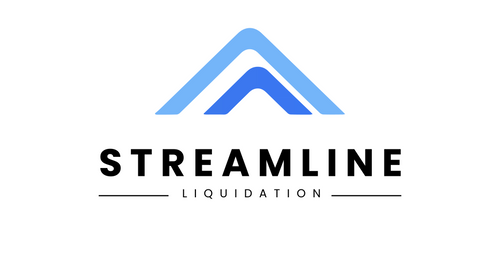Everything You Need to Know About Obtaining a Reseller License and Following Tax Laws
In the world of retail, whether it's online or brick-and-mortar, understanding the intricacies of obtaining a Reseller License and adhering to tax laws is crucial. This license, which goes by various names depending on the state, such as reseller permit, resale license, resale certificate, or sales tax permit, plays a pivotal role in your business's financial health. In this comprehensive guide, we'll unravel the complexities surrounding Reseller Licenses and tax compliance.
Understanding the Reseller License
What is a Reseller License? A Reseller License, regardless of its name, is an indispensable document for any business engaged in retail, whether through traditional or online channels. This license grants your business the privilege of not paying sales tax on wholesale products specifically purchased for the purpose of reselling them to your customers.
How Does a Reseller License Work? A Reseller License serves as a way for states to recognize a business as a collector of sales tax. It's a requirement for sole proprietors and all types of businesses involved in the sale of tangible property, either as wholesalers or retailers. With this license, businesses can skip paying sales tax on wholesale products meant for resale. Instead, they have the authority to charge sales tax to customers when reselling the products and subsequently remit it to the state. The frequency of tax filing varies from state to state, with options for monthly, quarterly, or annual filings.
States Without Sales Tax and Reseller License Requirements It's worth noting that only five states in the United States do not impose state sales tax. These states are Delaware, Montana, New Hampshire, Oregon, and Alaska. However, some of these states may still require Reseller Licenses at the local municipality level, so it's essential to check with local regulations.
Navigating Sales Tax Obligations
What States Do I Owe Sales Tax In? A landmark Supreme Court case, South Dakota v. Wayfair, has significant implications for resellers. It established that businesses operating in a different state may be obligated to report and pay sales tax to the state where their buyers are located. The concept of "nexus" determines whether a business must collect sales or use tax on its products.
Understanding Economic Nexus Economic nexus, as opposed to physical nexus, is often more relevant for resellers. To have economic nexus in a state, a business typically needs to meet one of the following criteria in the trailing twelve months:
- Achieve sales of $100,000 in revenue
- Conduct 200 or more transactions These thresholds may vary from state to state, and some states might not have transaction thresholds at all. It's crucial to monitor these criteria for each specific state where you operate your business.
State-by-State Legislation To stay compliant, it's essential to be aware of the ever-changing state-by-state legislation regarding economic nexus. This guide offers valuable insights into the specifics of each state's requirements.
What a Reseller License Is Not
The Federal Employer Identification Number (EIN) Distinction It's crucial to differentiate between a Reseller License and a Federal Employer Identification Number (EIN). The EIN is issued by the federal government and serves as a unique identifier for your business, akin to a social security number for individuals. In contrast, the Reseller License is issued by the state government and is specifically for the purpose of collecting and remitting sales tax at the local government level.
When to Use a Reseller License
Why and When to Use a Reseller License When establishing an account with a new wholesale supplier to purchase products for resale, the wholesale company typically requests a copy of your Reseller License or equivalent proof. This documentation allows you to make purchases without incurring sales tax. By providing a copy of your Reseller License or tax exemption certificate (depending on the state), you demonstrate to the wholesaler that you are eligible for tax exemption. This documentation is your safeguard in case of any state inquiries regarding uncollected tax.
Risks of Purchasing without a Reseller License
Importance of Compliance Purchasing goods without a valid Reseller License can lead to various risks and potential legal issues. It's crucial to understand the implications fully. For a detailed discussion on this topic, read our [comprehensive article](insert link here).
Seeking Truckloads and Building Relationships
Are You Looking for Truckloads? If you're interested in purchasing truckloads or exploring new suppliers, consider signing up for our daily available truckloads email list. This can be an excellent resource as you grow your business.
Building Relationships Like any startup endeavor, building relationships and gaining experience are essential steps toward success. We hope this guide has prepared you for the early stages of your business venture and has piqued your interest in connecting with us. Whether you have questions, comments, or simply want to engage in industry discussions, don't hesitate to reach out to us through our contact page. We're here to assist you on your journey.

